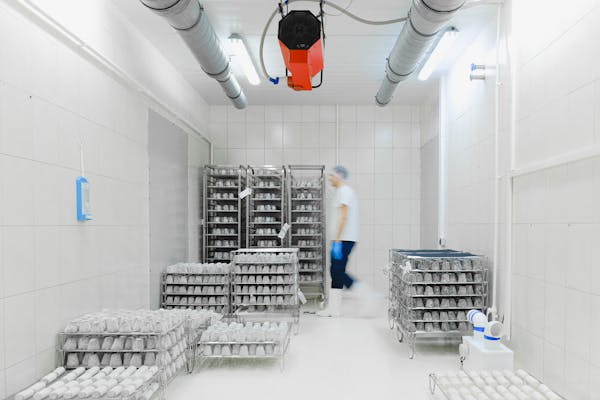
Cold chain logistics plays a critical role in ensuring the safety, quality, and effectiveness of perishable goods such as food and pharmaceuticals. These specialized supply chains rely on temperature-controlled environments to maintain the integrity of products throughout storage and transportation. With increasing global demand for fresh produce and vaccines, cold chain logistics has become more essential than ever.
In the food industry, cold chain logistics is vital for preserving the freshness of fruits, vegetables, dairy products, meat, and seafood. Without proper temperature control, these items risk spoilage, leading to significant financial losses and health risks. For example, frozen goods require strict temperature ranges to prevent thawing, while fresh produce needs optimal humidity levels to retain its nutritional value. Cold chain logistics ensures that food reaches consumers in its best possible condition, minimizing waste and maximizing shelf life.
The pharmaceutical industry heavily relies on cold chain logistics for temperature-sensitive drugs, vaccines, and biologics. Vaccines like those for COVID-19 require precise temperature ranges, sometimes as low as -70°C, to remain effective. Any deviation from the prescribed conditions can render these life-saving drugs unusable. Cold chain logistics solutions, such as refrigerated trucks, storage facilities, and temperature-monitoring devices, are indispensable for maintaining the efficacy of pharmaceuticals during transit.
Technology is a driving force behind the evolution of cold chain logistics. IoT-enabled sensors and GPS trackers provide real-time monitoring of temperature, humidity, and location, ensuring the safe delivery of sensitive goods. Automated alerts notify logistics providers of any temperature deviations, allowing them to take corrective actions immediately. This level of precision has drastically reduced the risks associated with transporting perishable goods.
Additionally, the sustainability of cold chain logistics is gaining attention. Many companies are adopting eco-friendly practices, such as using energy-efficient refrigeration systems and incorporating renewable energy sources into their operations. These efforts not only reduce carbon footprints but also align with global environmental goals, making cold chain logistics a more responsible choice.
As global trade expands, the importance of cold chain logistics continues to grow. Emerging markets are seeing increased demand for imported perishable goods and pharmaceutical products, further driving the need for advanced cold chain infrastructure. Companies that invest in these solutions can enhance their market competitiveness while ensuring compliance with international food safety and pharmaceutical standards.
In conclusion, cold chain logistics is an indispensable component of the modern supply chain, particularly for the food and pharmaceutical industries. By maintaining stringent temperature control and leveraging cutting-edge technology, it ensures that sensitive goods reach their destination safely and efficiently. With innovations and sustainability efforts shaping its future, cold chain logistics is set to play an even greater role in global trade and public health.
